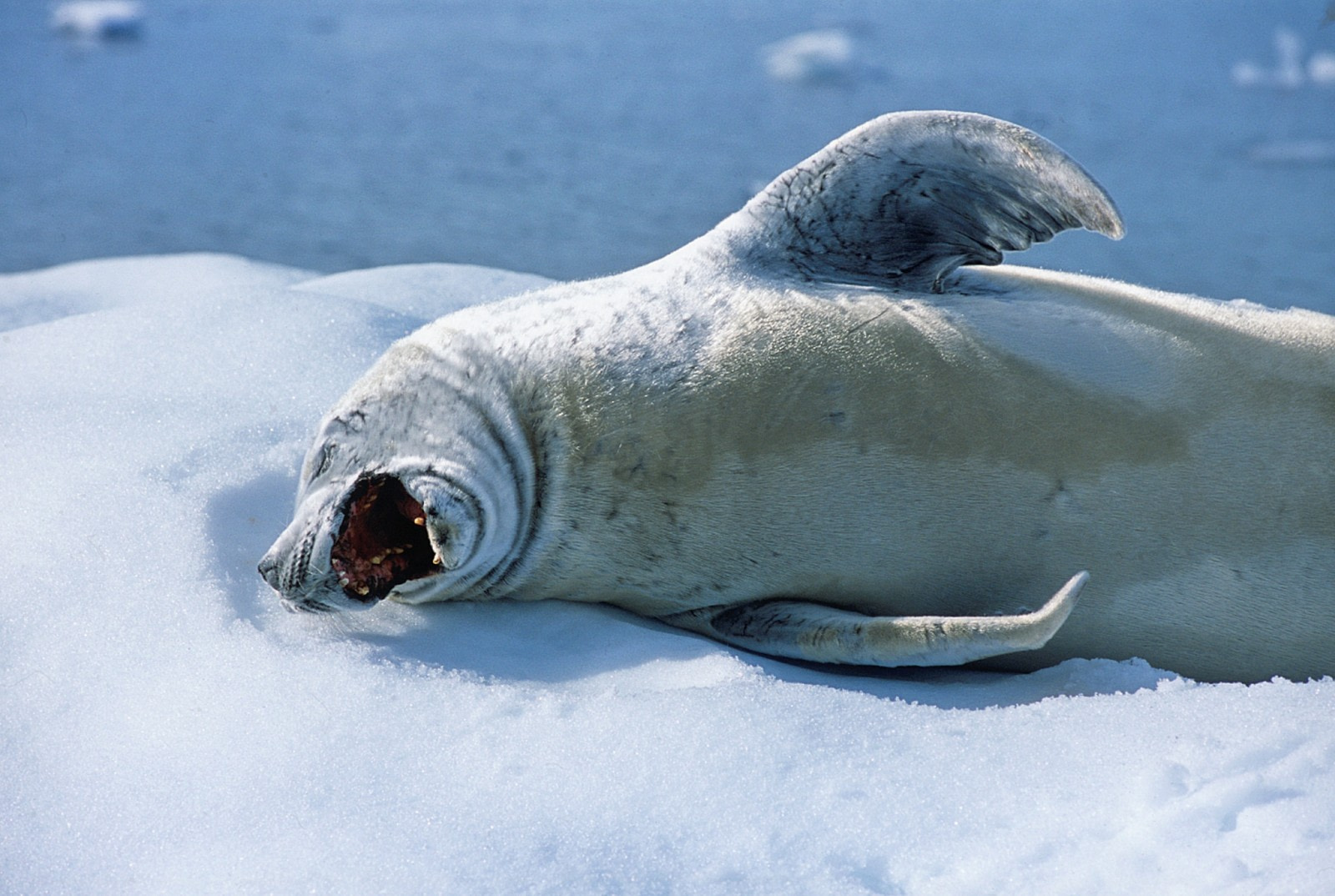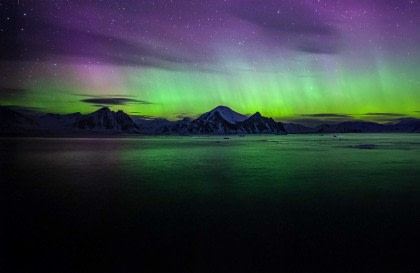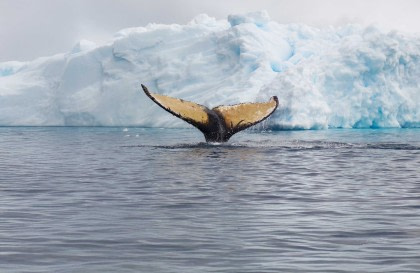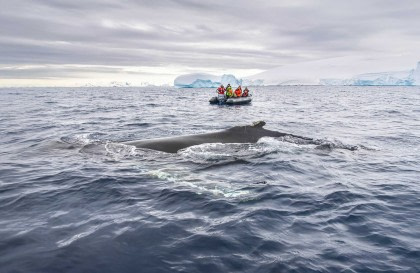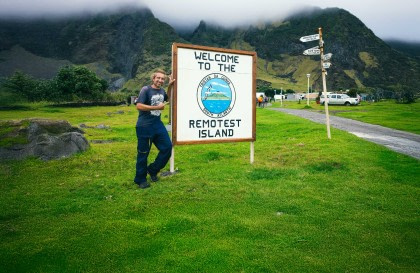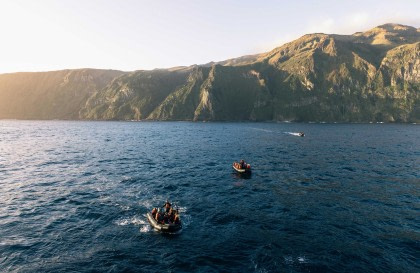Name: Crabeater Seal (Lobodon carcinophaga)
Length: 2,6 metres.
Weight: 200 to 300kg.
Location: Antarctic coastline.
Conservation status: Least Concern.
Diet: Krill, cephalopods, fish.
Appearance: Light grey or white.
How do Crabeater Seals feed?
Crabeater Seals have a unique adaptation for feeding – they have evolved a sieve-like tooth structure that filter krill, somewhat like the baleens on Baleen Whales. They suck in water containing krill, close their jaws, and then force the water back out between their specialized teeth, trapping the krill inside. Krill make up to 95% of a Crabeater Seal’s diet.
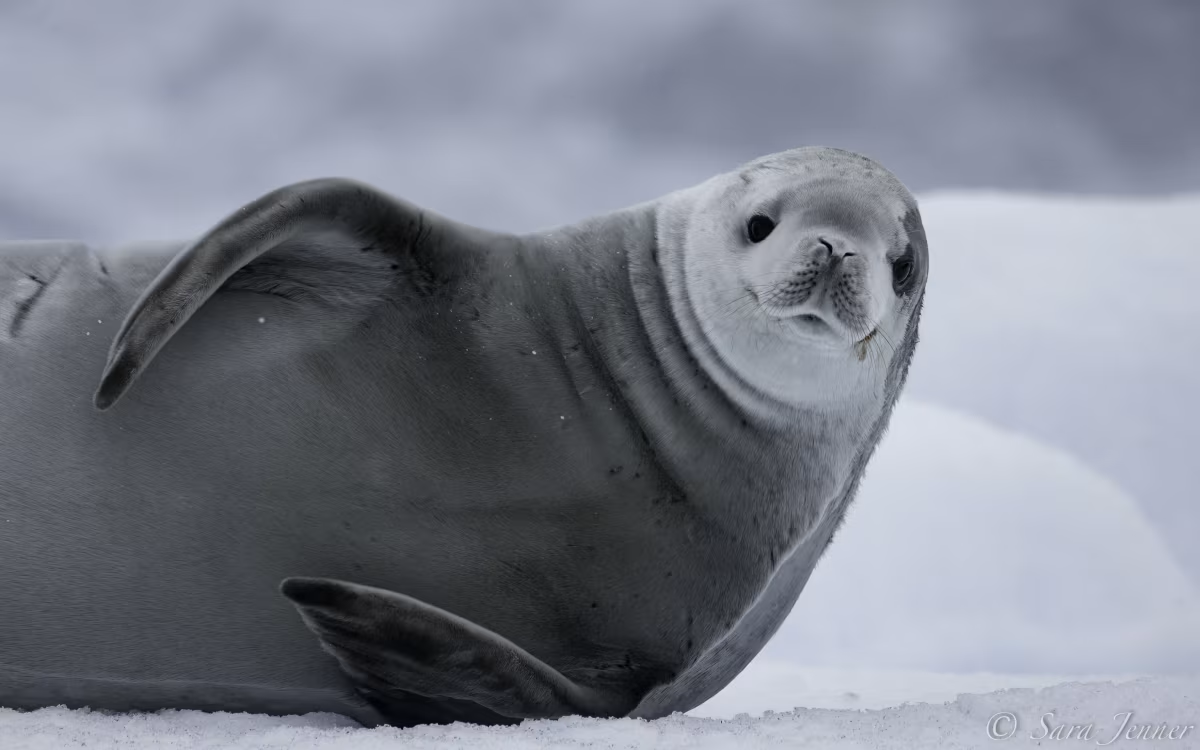
The Crabeaters do most of their feeding at night. They can dive as deep as 430 meters although feeding dives are usually around 30 metres. The hunt can last up to 16 hours, involving hundreds of dives.
Are Crabeater Seals social?
Crabeater Seals are probably the most sociable of the Antarctic seal families. When younger, they’ll gather together in groups that can number up to 1,000 hauled out together. As they grow older they become more prone to hunting alone or in much smaller groups of 3 or 4 individuals.
How fast can Crabeater Seals move?
On land, Crabeater Seals have an almost snake-like method of movement, weaving their front and back ends back and forth in a curving motion. Through this method they can reach speeds of 25 km per hour for short bursts. In the water Crabeater Seals can reach speeds of almost 13 km per hour.
What are Crabeater Seal mating rituals like?
Crabeater Seals reach sexual maturity starting at 3 years of age. Pregnancies last 11 months. Birthing season occurs from September through December. Unlike some other species, the Crabeater females will pull themselves out alone on the ice to give birth. An adult male (not the father) will attend to the mother and pup until about 2 weeks after the pup is weaned, at which point the female is ready for a new mating. When the pups are born they are about 120 cm long and weigh around 25kg. Nursing on their mother’s milk, they’ll gain around 4kg of weight every day until they’re weaned after only 2 or 3 weeks, at which point they’ll weigh nearly 100kg. The mother may have lost up to half of her own bodyweight by this point. The pups are born with a light brown down which they lose when they first moult at the time of their weaning. The light brown down is replaced with a darker brown fur that fades to a lighter shade on their bellies. This fur will lighten over time, resulting in the light grey fur sported by mature adults.
How long do Crabeater Seals live?
Crabeater Seals are known to live up to 40 years in the wild.
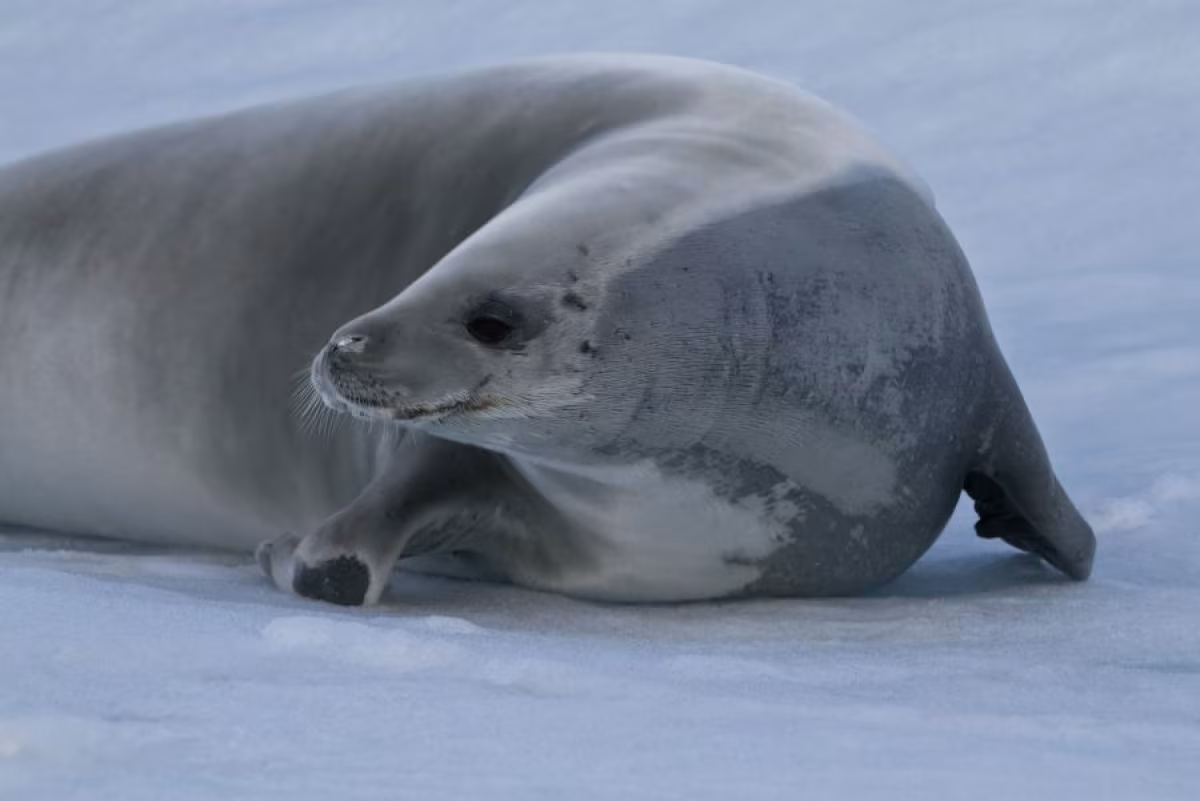
How many Crabeater Seals are there today?
Estimates for the world’s Crabeater Seals population vary wildly – from 7,000,000 to 75,000,000.
Do Crabeater Seals have any natural predators?
Crabeater seal pups are preyed upon by Leopard Seals. Both the young and adults are taken by Killer Whales.
7 Captivating Crabeater Seal Facts
- Crabeater seals are the most abundant seal on Earth, with populations estimated as high as 75 million individuals
- The scientific names of “Lobodon” and “carcinophaga” mean “lobe-toothed” and “crab eater” respectively. Despite the name, Crabeater Seals don’t eat Crabs.
- Crabeater seals bodies have been found remarkably far inland, over 100km from the shore.
- Many crabeater seals have a number of scars on their bodies – results of run-ins with Leopard Seals.
- Crabeater seals will sometimes use the breathing holes in the ice made by Weddell Seals. Sometimes they’ll even chase younger Weddell seals away for exclusive rights to a particular breathing hole.
- If feeling threatened crabeater seals will snort, hiss, show their teeth, and roll over multiple times. This is probably a getaway tactic evolved to help evade killer whales and leopard seals.
- The unique sieve-like teeth of the crabeater seal are considered to be the most specialized of any carnivore.
